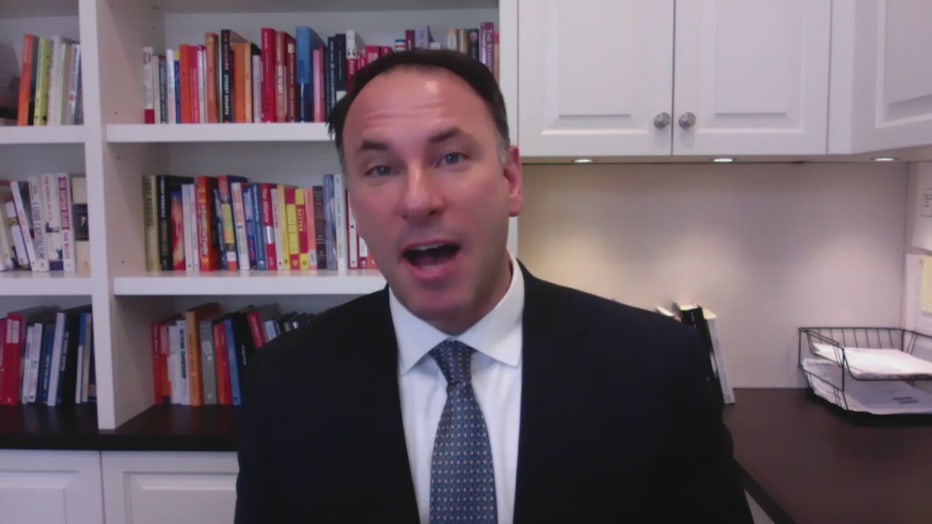Dr. Adam Rosh talks about what happens after flattening the COVID-19 curve

Dr. Adam Rosh talks about what comes next after flattening the curve
"The next phase of this is going to be how do we get back out and get the economy started again, because we can't do this for 18 months."
FOX 2 - Dr. Adam Rosh has been following this pandemic since it began and we've been talking about how it's affecting us.
FOX 2: "Where are we now in the Detroit area relative to this pandemic?"
Dr. Rosh: "The numbers continue to rise but there is good news and we're starting to see a flattening, a plateauing of the numbers and the number of deaths, which is great. What we wanted to avoid from the very beginning, is to be able to flatten the curve so that we reduce and limit the number of unnecessary deaths. I think people have done the right things and we are seeing a plateauing.
"But that does not mean this is going to last like this, long into the future."
FOX 2: "Is it safe to say that we're beginning to flatten the curve and is staying at home the whole stay at home shelter, is it working?"
Dr. Rosh: "Right now when we had a certain of cases, the most important thing would be physical distancing, staying at home, keeping out of crowds, good hygiene and we needed to do that to flatten the curve. And we're doing that right now. The next phase of this is going to be how do we get back out and get the economy started again, because we can't do this for 18 months.
"But COVID-19 will be a long-term problem and so these are not mutually exclusive, preventing spread and getting the economy started again, need to be done together. There are things we could be doing side by side, in order to do this.
FOX 2: Dr. Rosh, we know things will never go back to exactly how they were before this pandemic started, you've said that before, what do you mean by that?
Dr. Rosh: "The fact that the virus that causes COVID-19 endemic in our society, means that we will always be at risk of being infected. What's really important, though, is that when we are able to get back out, that we get as many people as possible who have proven immunity out there, because they're going to act like lightning rods and they are going to limit the spread among everyone else."
FOX 2: "Proven immunity, who are these people?"
Dr. Rosh: "Right now if you've tested positive for covid-19, the next step for someone like that is to be able to get serological testing. Serological testing measures your anti-body response to the virus. Just because you've been exposed doesn't actually mean you're immune to covid-19. and there's a lot more information coming out about this.
"But based on virology in general, we know that an exposure to a virus should lead to immunity. In order for us to get back to some resemblance of normality we're going to need to find out who is able to mount a strong immune response and get those people out into the public.
"Because the more people that are out there that have been not just exposed, but have mounted a strong immune response, they're going to dilute the spread, they're going to prevent the spread on a massive level. We need identify those people and get them out."


